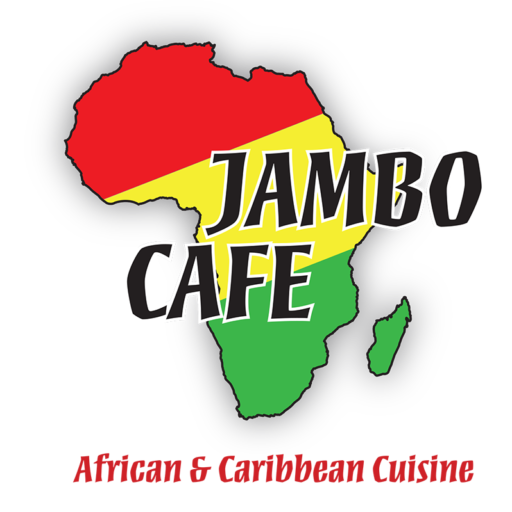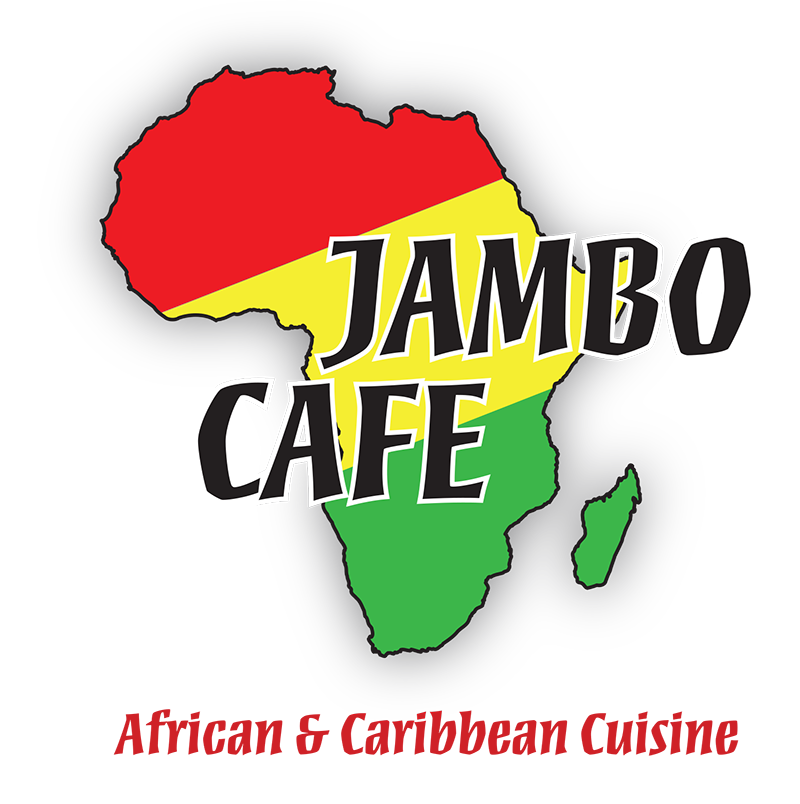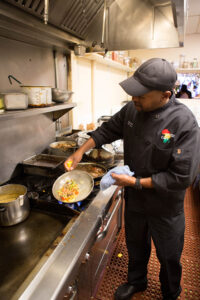Why I Cook
(Story by Mark Oppenheimer)
Asking “Why?” is both a personal and philosophical question. In the asking, there’s an innocence, a sense of wonder, an encounter with the mystery. Sometimes, to question “Why?” is simply enough; it’s part of the endless search for who we are. Twelve chefs, 12 whys. We got to talking.
Mark Oppenheimer: Why do you cook?
Chef and Writer Cheryl Alters-Jamison: I cook because I have to. It’s what I love, it’s what I do. It’s what I do when I’m happy and sad, when I need to think, or when I don’t want to think, how I express who I am, and it’s how I make use of my creativity. It’s just really everything to me, absolutely central to my existence, and it has been that way since I was a little kid. My parents weren’t adventuresome cooks––they were very much Midwestern, straight-meat-and-potatoes style of cooking, and actually that’s part of what inspired me to cook. I felt like there was a lot more out there, and through cooking different cuisines you’d learn about what they were eating in other parts of the world.
Chef Joel Coleman of Fire and Hops: It didn’t start off as a love for it. In the beginning, I didn’t know what I was doing. My first love was music. When I started cooking, I was still serious about pursuing a career as a music producer. My Mom always reminds me, I was just born with it: “You’ve had it from the beginning; I’ve know for a long time this is just what you’re supposed to do.” I feel like there’s the emotional side that’s really meaningful, knowing your work has touched people deeply, and it creates a memory that they’ll have forever. It warms my heart to have that effect on people.
Chef Ahmed Obo of Jambo Café: In our culture, men don’t cook. With my dad, we would go to work, to cook lunch, we would bring corn meal, water, salt and dried fish. We called that Ugali. We’d collect firewood, boil water, mix it up and grill the dried fish. We would eat, and that was the day. Sometimes, the tide would be low and we just put a pile of wood and make a fire and the tide would rise and come right through the fire while we were making the Ugali. So those are memories.
I also remember hunting for small crab, and right there, we would grill and eat them with Ugali. My dad taught me how to work hard. You got to go for it––be tough. He doesn’t tell you to be tough, but he made me carry that heavy load, pulling the boat, bailing the water. He taught me how to manage, controlling the flow. Here in Santa Fe, being a chef, I don’t do that kind of thing, but still you have to manage people, food, creativity, what it takes to get it done. Cooking gives me joy. I’ve created those things, so now I am comfortable that I can cook. I can feed people and they appreciate that. I love that I can jump into the kitchen, create something out of nothing, and then I feel like, Wow! It feels good, and what it gives me is that it drives me to the next stage. I am seeing it. I am grateful for the journey, all that it guided me to be.
Chef Jose “Kiko” Rodriguez of Izanami: I cook because cooking together was always a big part of our family tradition. I wanted to give people something that I created and share my cooking with them. I also like to show them the good things that cooking creates such as the bonds that are made while working together. I love to watch people enjoy my food and see my love and passion for cooking in my dishes. When they compliment my food, it helps me to build more passion and love for what I do.
Chef Joseph Wrede of Joseph’s of Santa Fe: I cook to please others. I cook to bring honor to my house and the house shall honor you. I cook because I can. The discipline suits me like a chef’s coat. It’s very reassuring to have place and purpose to bump cult and culture.
Chef James Campbell Caruso of La Boca: Food matters, hospitality matters, the social aspects of dining out and sharing food and drink are an important part of how we interact with each other as a community. Making sure, when people come in, they are going to have a good time is an intimate relationship I take very seriously. That’s why I cook. It’s a real, ancient, primitive act to say, “Come to my house, I’m cooking something, please join me.” That’s what we do [as chefs]––it’s a way we continually engage with each other as a community. One of the ways I have a conversation is everything I do—every decision I make before our guests arrive is inextricably fused with that goal. That’s the big thing as a chef and a restaurateur––people are coming to the house, [and] I want to treat them very well. So I cook.
Chef/Baker Annamaria O’Brien of Dolina: I simply cook because I love the process. Great connections and conversations usually happen around the table with friends over sharing a wonderful meal, and I love that I am able to provide that and share pieces of myself and my Slovakian culture. I’m doing what I love to do. Baking is very fulfilling and gives me an outlet to be creative in a way that I love, and it’s very rewarding to see people eating food and being thankful for the experience. It’s an instant satisfaction to see someone eating food that you put your love and energy into.
Chef Mark Connell of State Capital Kitchen: Sometimes, I wonder why. It’s just one of those things. When I was 7 or 8 years old, living in Montana, we ran out of peanut butter and we wanted to make some PBJs. I looked at my friends: “I got this!” I put a bunch of peanuts in a plastic bag and ran over them with my bike a bunch of times [laughs]. It didn’t work. But I had the idea.
I think there’s always been a real interest in cooking, it comes naturally, and I really like making people happy, and I’ll bend over backwards for vegetarians and vegans, anybody with dietary issues––because that’s what I’m trying to do is make people happy. I’m not making this dish for myself. It’s not for myself, it’s for other people, and I’m hoping to leave them with a memorable experience.
Chef David Sellers of the Street Food Institute: I really started cooking after I cooked my way through every page of all three of the Chez Panisse Café Cookbooks. That is what lit my fire, and from that point on, I started cooking more and more seriously. To me, the basis for my cooking became this existential awareness––the authenticity of the craft.
If you don’t love cooking, you can’t do it in a professional manner. You have to be able to live it. During the time I had my restaurant, I lived the restaurant. It was literally part of my being, I lived it 24/7. That’s what it was. That’s what my family’s life was. For the first three years, it was the most unbelievable thing I’d ever done. Because what happened was, there was nothing like that feeling––as the Chef, when you walk out from the kitchen into a full dining room and people are having such a good time and it’s vibrant energy that’s simply unexplainable. It was a soul-feeding moment.
Whatever it is you’re making, make it the best you possibly can. I’ve been a chef now for 25 years, and still every single time I make a dish, I try to make it better than I did the last time. The authenticity of craft has been there the entire time––even when I cook for the kids or that steak on the grill at home––that thought is always present. How perfect can I make this steak? How much better can it be? Every single time. That’s the idea that always drives me.
Chef Olive Tyrrell of The Kitchen: It’s simply to give pleasure. It’s my way of making the world a little bit better one meal at a time and leave the world a better place. That’s what we should be doing, and food to me is doing that. It’s imparting a little bit of happiness to somebody, even for an hour, and hopefully they’ll take that happiness out to the world.
A huge part of it for me is that I get to support local farmers. I get to be part of that whole game. There’s some young people who started farming last year, I buy their produce and that’s awesome, as well as growing our own food at the nursery. Every morning, I’m out there harvesting the freshness––people eat it and they’re jazzed about it. In my little restaurant, I get to be a part of that conversation, and that makes me really happy because it’s real.
Private Chef and Writer Mark Oppenheimer: There were times in my life when I remember saying to myself, “I wish I were as fearless in life as I am in the kitchen.” I am an amateur. From the beginning, I made it all up, with no idea of what I was doing. I wandered there because the idea of cooking anything kept the memories of my grandmother close to my heart. I’ve never had a cooking lesson, unless you consider reading cookbooks, cooking magazines and inadvertently watching others. When I was 12, on a Boy Scout overnighter in the middle of winter, completely happy in a frozen landscape, while sitting alone on a log, I made fried chicken on an open fire for the troop. I figured I knew how after watching Mary Gaffney, our housekeeper, make it for my brothers and I: 1/2 Crisco, 1/2 bacon fat, flour, salt, pepper, garlic salt and a paper shaking bag was the basic recipe. I quickly learned that cooking pleased others––but it also taught me that at some basic level I would always be able to take good care of myself. Later, after college, I’d seek out local ethnic dives. I became good at reverse engineering any meal––I’d break down the components then try to imitate it at home. My friends continually tease me that every story I tell would not be complete unless it includes what meal I might have cooked. Few meals ever go by without my planning the next one.
Chef Cristian Pontiggia of El Nido: First of all, I like to eat. Second, it is a more complete form of art. In cooking you have everything. Think about [how] an artist makes a painting. You have the color, the paints, the frame, the picture in their mind. And with the food there are similar things: the plate is a frame, we don’t paint just with the color and the presentation, but we incorporate every sense––smell, taste, visualization, everything. The process is unique. Everything is on the plate; you can see it with your eyes, you can smell it, taste it. Sometimes, you can hear it, too. For me, it’s the most complete form of art ever. It satisfies my creative and artistic intentions, but in a more complex and amazing way. I can create something and destroy it right away by eating it. For me, it is pure poetry. You can buy a painting and everybody can see it forever. With the plate, we can recreate the same dish, but it’s never going to be exactly the same. It’s just for you


